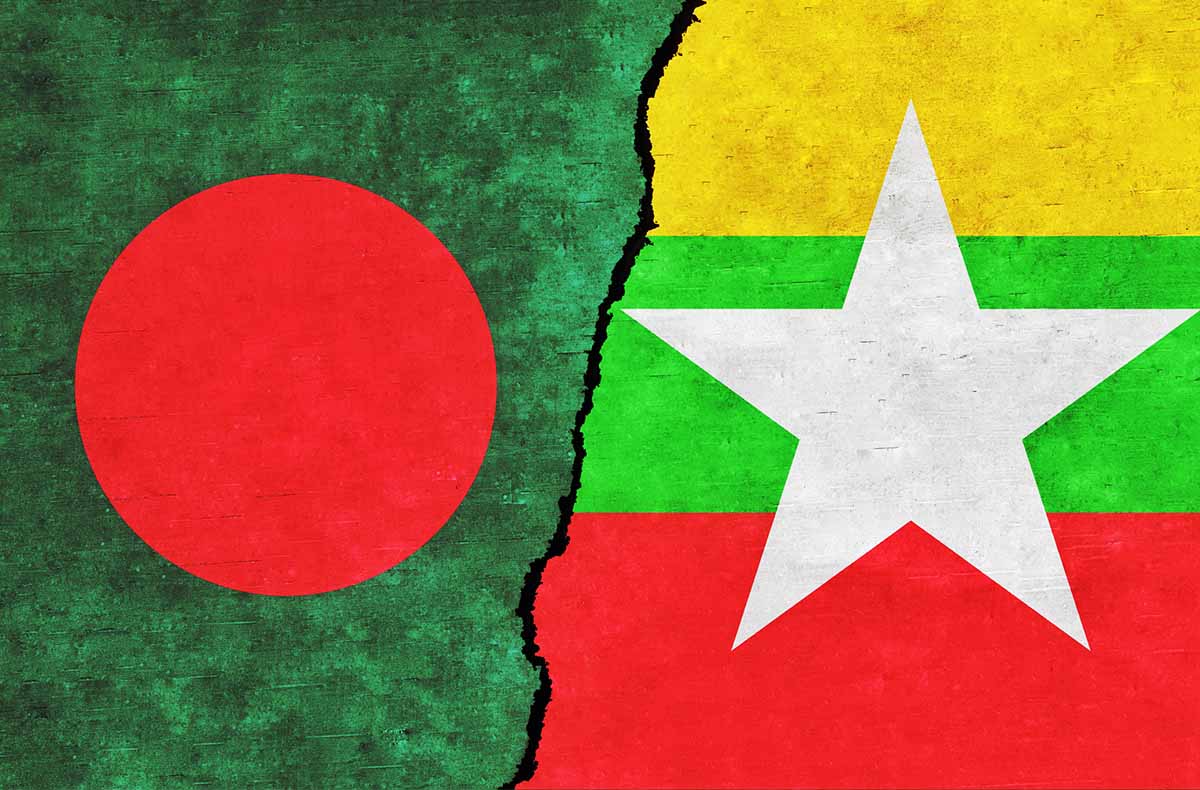
Throughout history, nation-states have resorted to classifying their neighbors into two distinct categories, the “good” and the “bad.”. However, the twentieth-century good neighbor theory came from the former president of America, Franklin D. Roosevelt, which focused on maintaining relations with Central and South American nations.
Raising no surprise, this moral theory ended up at the height of the cold war with Washington entangled in regime change operations in those neighboring countries. Unlike the US in ways but more alike in purpose, still in the twenty-first century, many nations across Asia remain mired in a “bad neighbor policy” as evidenced by the continuing Sino-Indian border conflicts, the intense Indo-Pak rivalry, and the relentless stalemate on the Korean Peninsula between North and South Korea.
Europe is the best example where most countries practice “good neighbor policies” and embrace cooperation, passing on years of historical conflicts. Particularly France and Germany, who fought countless wars, including two world wars, and have now become close partners.
Consider the US and Japan—despite a nuclear catastrophe by Washington in World War II, they currently serve as shining examples of how history can be rewritten for the better. Even recently, after years of hostility, on both ideological and strategic grounds, Iran and Saudi Arabia have agreed to restore their ties, keeping in line with their individual and joint ambitions of leading the Middle East.
Thus, why not Bangladesh and Myanmar? Why can’t these two neighbors learn from this historical and contemporary paradigm that teaches how wrongs can be righted and good can come from even bad?
Though it must be addressed, that the Dhaka-Naypyidaw relationship is now at a critical stage in the Rohingya Crisis, serving as a source of strife over current and future bilateral relations. But, as these two neighboring countries have immense potential, there remains a glimmer of hope for cooperation waiting to be tapped into.
Areas to cooperate:
With Bangladesh’s graduation from the Least Developed Country status looming in 2026, Myanmar’s strategic location offers a once-in-a-lifetime chance for Bangladesh to make significant headway toward its ambitious goals. As Bangladesh embraced its “Look East Policy” in 2002 to foster connections with Southeast Asia, Naypyidaw may play a significant role in enabling Dhaka to unlock its doors to Southeast Asian nations.
In addition, Myanmar’s geostrategic location provides abundant natural resources, particularly oil, and gas, which have the potential to support Bangladesh’s burgeoning energy demand. Additionally, Naypyidaw is a significant producer of food such as grain, and other kitchen staples, presenting a promising alternative for Dhaka, which heavily depends on India for these critical commodities.
Though such reliance had severe consequences in the past, as demonstrated when India suspended onion exports in 2019, causing prices to surge by a staggering 400% in the local markets of Bangladesh. Hence, by forging closer ties with Myanmar, Bangladesh may swiftly diversify its supply chain, thereby mitigating the risks associated with dependence on a single source for imports.
Even regarding exports to Naypyidaw, the statistics are particularly encouraging, with packaged medicaments, or pharmaceuticals, being the primary export from Dhaka. This represents a significant opportunity for Bangladesh, as the demand for pharmaceuticals is expected to continue to rise in the coming years. During the 2021-2022 fiscal year, Dhaka exported these life-saving products to 140 countries worldwide, generating a remarkable $188.7 million in revenue.
Among all, Myanmar, in particular, stands out as the largest recipient of these exports, receiving a whopping 15% of the total pharmaceutical products and satisfying 5% of the nation’s medical needs. Just as Myanmar has much to offer, so too does Bangladesh. Being considered an exceptionally progressive nation in the world, Bangladesh can be a haven for Myanmar to cooperate.
As the geographical location of Bangladesh makes it a bridge between South and South-East Asia, by pursuing a good trade relationship with Dhaka, Naypyidaw will not only have access to Bangladesh’s market of 165 million consumers. Still, it will also gain the benefits of transit and transshipment facilities, enabling them to tap into markets in Bhutan, Nepal, and North-East India.
Myanmar has plenty of resources to uplift its economic status but it still lacks the capacity to leverage the opportunities because of vital challenges like a shortage of skilled human resources and technology. Bangladesh is now enjoying a demographic dividend with its skilled labor force growth and a rise in technological advancement; Myanmar can engage Dhaka in its economic activities to drive production to a new height.
Besides, the impact of climate change is another pressing issue that poses a shared danger for both Dhaka and Naypyidaw. As for Bangladesh, the World Bank estimated last year that climate change could cause up to 13.3 million people to become internal migrants in the next three decades.
Moreover, the displacement of 1.1 million Rohingya refugees has compounded the situation in Bangladesh, exacerbating an already high population density. Nonetheless, there is an option for partnership as Bangladesh and Myanmar are both members of the Climate Vulnerable Forum (CVF). Myanmar also ranks as one of the top high-risk disaster-prone countries.
The International Foundation for Red Cross and Red Crescent Societies’ statistics paint a grim picture of disaster risk levels globally, with Myanmar ranking 17th out of 191 countries. That indicates that possible cooperation may be signed to tackle climate change to serve a better future.


